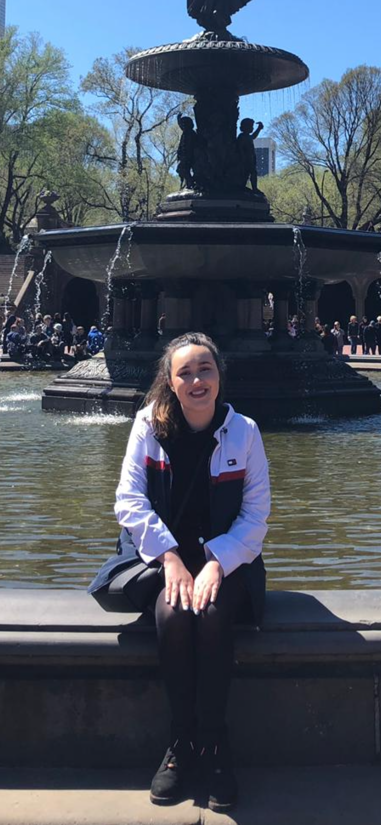Sociology
Entry Criteria
- Mathematics GCSE Grade 4
Examination Board
- AQA
Click here to visit the exam board course page for A Level Sociology.
Teaching Staff
- Mrs Thirlwall
Sociology is the study of people and society. It looks at human groups and social life in society to try and understand how they affect us.
Sociology provides an opportunity to study some exciting debates and issues such as:
- Discuss the view that the media injects messages of violence into the audience.
- Are grammar schools the best way to educate children?
- Women are given lighter prison sentences than men. Why?
- Do same sex relationships offer a greater chance for equality?
By its nature Sociology is about opening your eyes and looking at the world around us from different perspectives, therefore it provides various opportunities that help you to become a more informed and aware learner.
- You will be involved in group work, discussions and class debates
- You will carry out your own research and presentations – active Sociology
- You will develop literacy skills writing argumentative essays
- You will learn how to apply sociological theory to contemporary examples and news stories
If you enjoy finding out about why people choose to behave the way they do, what may have influenced their decisions and the different views people have on those choices you will find Sociology an interesting, challenging but rewarding subject.
Sociology studies people and therefore combines with many subjects, in particular the Humanities such as History, Government & Politics and Geography as well as written based subjects such as English. Many students study Psychology alongside Sociology as there are many cross curricular themes particularly in research methods.
All careers involve working with other people and Sociology offers you the opportunity to understand human behaviour, meaning the subject is excellent preparation for any future aspirations.
In particular Sociology is related to the following career paths/areas:
- International, Human, or Public Relations
- Government or Council based work
- Social Care
- Military
- Criminal Justice/Probation/Rehabilitation
- Administration
What do our students say about Sociology?
Studying A Level Sociology was really enjoyable and interesting. I enjoyed the class debates and discussions over the issues we were presented with. Sociology has really helped me develop a wider understanding of the world that we live in and different issues such as media representation, institutional racism and underachievement in schools.
For any future sociology students, I would say really immerse yourself in the topics. For Sociology it’s so easy and beneficial to do extra research and it can be as simple as just watching the news or TV and for example, finding examples of moral panics or representations of social groups. Also for Sociology revision I liked to revise by making flashcards with the sociologists name on and details of their research to help me remember the studies.
In addition to that I would strongly advise future A Level students to use their free periods. When you have a free period, particularly if its 1st or 5th, a lot will think ‘Oh I get a lie in’ or an ‘early finish’ when really its not. If you use the majority of your free periods to do work you will notice a difference in the workload and the results that you get. Doing 3 A Levels is a lot and within that per subject you will often be studying different elements. Sometimes along with that work, you may choose to do the EPQ (like me) and have other commitments to balance (not to make it all sound too overwhelming). So using a few hours throughout the day to complete smaller tasks like homework will make it easier so when you are at home you can dedicate it to larger things such as EPQ, coursework and revision.
I studied English Literature and History alongside Sociology. I found that doing all 3 of my A Levels together was really helpful as they inter-linked. Sociology comes in to English Lit as you have similar theoretical views when studying literature for example, Marxist and Feminist. They also interlink as they are all essay subjects so as my essay writing strengthened in one subject it translated to the others.
After Sixth Form I want to study Criminology and Sociology at University. Obviously Sociology is going to be a significant part of the course, but A Level Sociology isn’t required, so I hope my A Level will give me a good grounding and I’ll be ahead of students who haven’t studied it yet.

Jess also completed an EPQ looking at the rehabilitation of children who commit murder, gaining research skills and understanding of the law that will help her in her Criminology and Sociology degree.
My favourite thing about studying Sociology is the class discussion. We talk about society and debate different viewpoints regularly – it is great to hear everyone’s opinion on the topic. Another great benefit to studying Sociology is the variety of material there is out there to watch and read. Dr Leggett is great at recommending different documentaries or films for us to watch and discuss.
At the start of Year 12, I hadn’t realised how relevant studying Sociology is to our lives – it was really unexpected as I hadn’t studied the subject before. That’s the advice I would give to Year 12 students: even if you haven’t studied Sociology at GCSE, don’t be afraid to give it a try. If you really aren’t happy with your choice you can always change your mind and swap to a different subject, but I doubt you will be!
As well as Sociology, I’m studying Psychology and History. After Sixth Form, I am planing to go to university to study Criminal Psychology.



